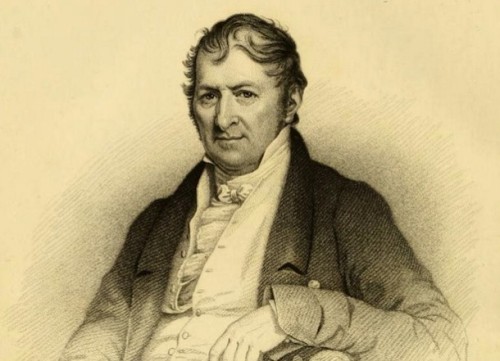March 14th 1794: Eli Whitney patents the cotton ginOn this day in 1794, American inventor Eli Whitne
March 14th 1794: Eli Whitney patents the cotton ginOn this day in 1794, American inventor Eli Whitney recieved a patent for his cotton gin. Whitney, who was born in New England, moved to Georgia in 1792 to work as a tutor on a plantation. Whitney witnessed the system of Southern slavery firsthand, and noted that the growing of cotton - a staple crop on slave plantations - was becoming unprofitable. The one strain of cotton which grew inland had sticky green seeds which were time consuming to pick out of the fluffy cotton balls. Whitney sought to build a machine which would speed up this process, therefore ensuring the continued viability of the Southern cotton-based slave economy. The result of his efforts was the cotton gin, which could separate the seeds from the cotton at speed. Whitney patented his invention in 1794, and with his business partner installed them throughout the South and charged planters for their use. Planters, who resented paying the high price for using the gin, exploited a loophole in the patent law and made their own versions of the machine. The invention of the cotton gin made a significant impact upon the Southern economy and, indeed, the course of American history. After the invention, the yield of raw cotton doubled each decade after 1800, ensuring the continued profitability of slavery in the United States and leading to the growth of American slavery. Using machines of the Industrial Revolution to refine and spin cotton, grown by enslaved people who were not paid for their labour, the United States soon became the world’s leading supplier of cotton. Historians sometimes claim the invention of the cotton gin as a pivotal moment in the coming of the American Civil War. The invention ensured that the evil of slavery continued in the American South, setting the nation on the course to war over the ‘pecular institution’. -- source link
Tumblr Blog : todayinhistory.tumblr.com
#history#american history#us history#slavery#american slavery#eli whitney#cotton gin#cotton#slave south#king cotton

